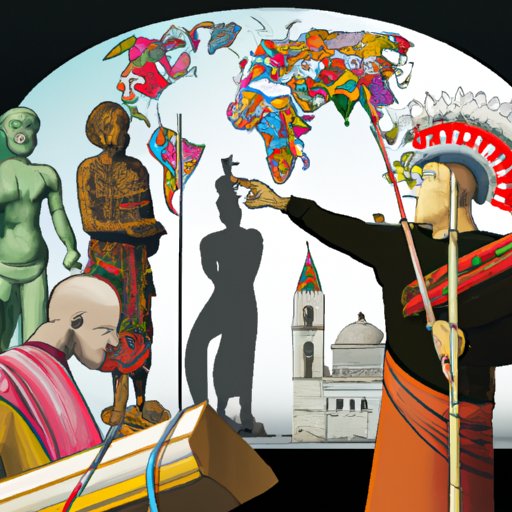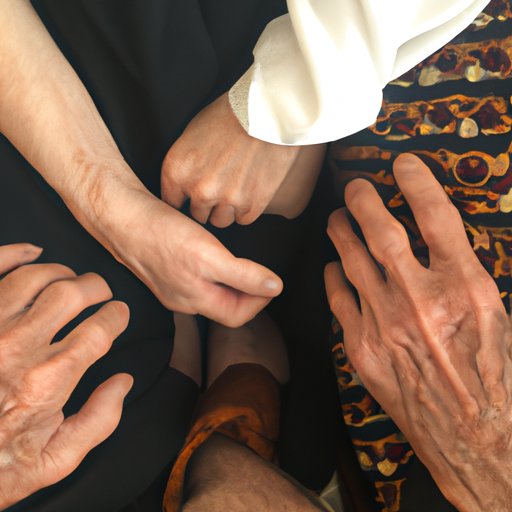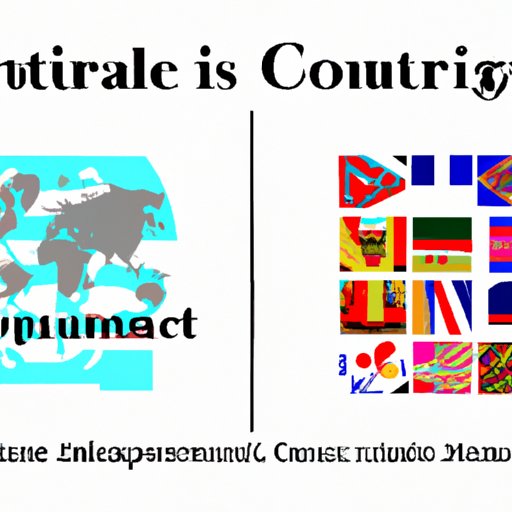Introduction
Culture is a complex concept with multiple layers and meanings. It can refer to a particular set of shared beliefs and values, or it can be used more broadly to describe all the ways in which people interact with each other. In this article, we will be exploring where culture comes from and how it is transmitted through generations. We will look at the historical, geographic, and social factors that shape different cultures, as well as the role of technology, colonization, language, family, education, media, and religion in their creation and transmission.

Examining the Origins of Different Cultures
When trying to understand the origins of culture, it is important to take into account the historical context in which it was formed. Many cultures have evolved over time, influenced by the migrations of different groups of people and the interactions between them. Migration patterns, geography, and climate are all major contributing factors to the development of different cultures. Additionally, social and political factors such as war, famine, and oppression can also play a role in shaping cultural identity.
Exploring Why Certain Cultures Emerge and Others Don’t
The emergence of certain cultures and not others can be attributed to a variety of factors. Technology has been an important influence on the growth and spread of certain cultures, allowing for the exchange of ideas and the sharing of knowledge. Colonization has also been a major factor in the emergence of new cultures, as colonizers brought their own beliefs and customs to the countries they conquered. Finally, language has been a powerful force in the formation of culture, as different languages can lead to different forms of communication and expression.

Investigating How Culture is Transmitted Through Generations
Family plays an important role in the transmission of culture from generation to generation, as parents and grandparents pass down their values and beliefs to the younger generations. Education is another key factor in the transmission of culture, as schools often teach students about their cultural heritage and the history of their people. Finally, media has become increasingly influential in the transmission of culture, as television, films, and music can have a powerful impact on how people view themselves and their place in the world.
Analyzing Cultural Exchange and Its Impact on Society
Globalization has led to increased cultural exchange, as people from different countries and cultures interact more than ever before. This can lead to a greater understanding of different cultures and an appreciation for diversity. Cross-cultural interaction can also help to create a sense of unity and solidarity among different communities, as people learn to appreciate and respect each other’s differences. The exchange of ideas can also lead to greater innovation and creativity, as different cultures come together to share their experiences and knowledge.

Comparing and Contrasting Various Cultural Practices Around the World
One way to gain a better understanding of culture is to compare and contrast the various cultural practices around the world. Food and cuisine can provide insight into the cultural identity of a particular region, as different countries have unique recipes and ingredients. Music and art can also reveal much about a culture, as different genres and styles can reflect the values and beliefs of a particular group of people. Finally, clothing and fashion can tell us much about a culture, as different styles can indicate the level of importance placed on appearance and status.
Studying the Role of Religion in Shaping Cultural Identity
Religion has long been an important factor in the formation of cultural identity, as many societies have been shaped by their religious beliefs and rituals. Religious tolerance is essential in order for different cultures to coexist peacefully, as it allows people to express and practice their faith without fear of persecution. Faith can also have a powerful impact on society, as it can provide comfort and hope in times of hardship and despair.
Conclusion
In conclusion, culture is a complex phenomenon that is shaped by a variety of factors. Historical, geographic, and social factors all play a role in the emergence and transmission of culture, as do technology, colonization, language, family, education, media, and religion. Understanding the origins and transmission of culture can help us to appreciate and respect the beliefs and customs of others, and to foster a sense of unity and solidarity among different communities.
(Note: Is this article not meeting your expectations? Do you have knowledge or insights to share? Unlock new opportunities and expand your reach by joining our authors team. Click Registration to join us and share your expertise with our readers.)
